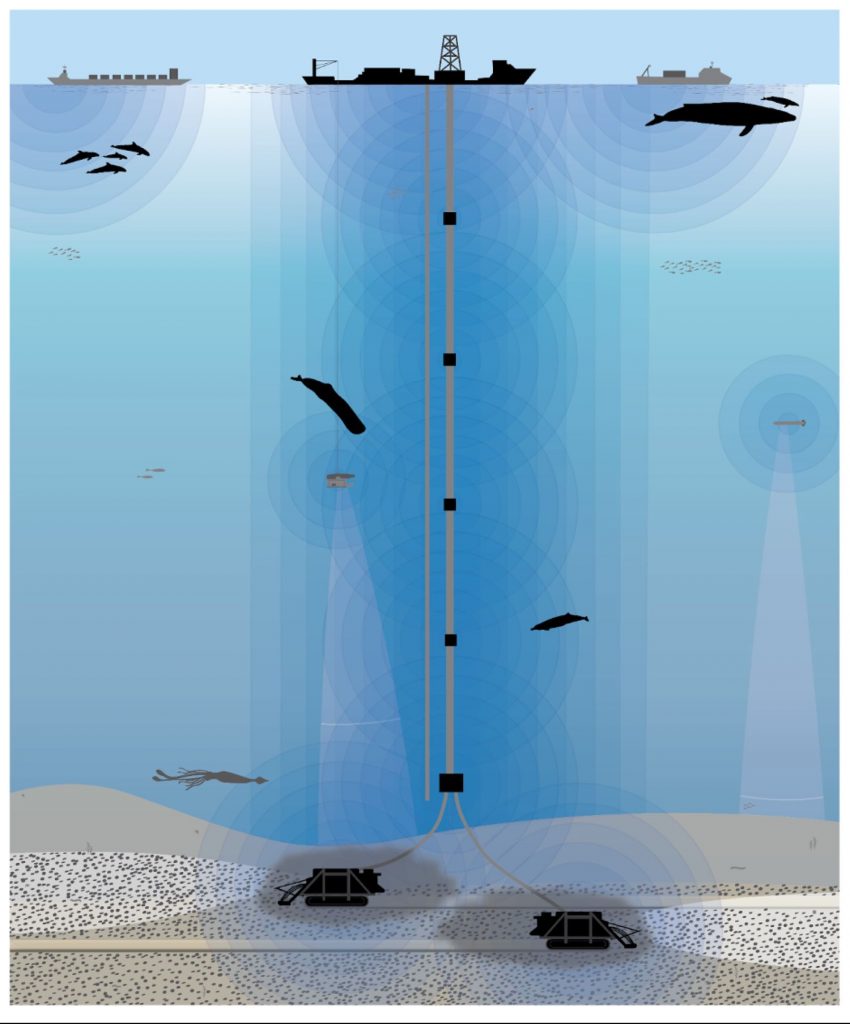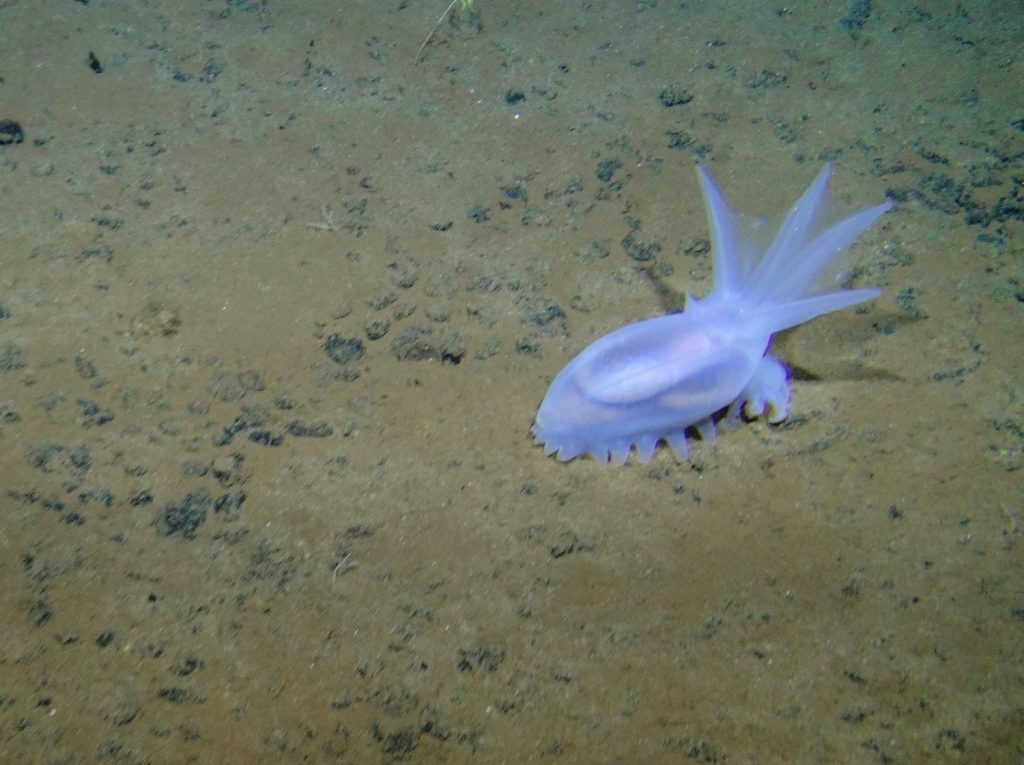Study: Deep Sea Mining Noise Pollution Will Stretch Hundreds of Miles
A recent study on underwater noise pollution from seabed mining operations, which included scientists from the University of Hawai‘i at Mānoa, found that noise from one mine alone could travel roughly 311 miles in gentle weather conditions, which could affect the understudied species living in the deep sea.
Scientists from UH-Mānoa, Oceans Initiative, the National Institute of Advanced Industrial Science and Technology in Japan and Curtin University in Australia contributed to the study. The findings were published in Science.

“Our modeling suggests that mining noise could impact areas far beyond the actual mining sites, including preservation reference zones, which are required under draft mining regulations to be unaffected by mining,” Craig R. Smith, a professor emeritus of oceanography at the UH-Mānoa School of Ocean and Earth Science and Technology, said in a press release.
Smith says the study’s findings could require rethinking of environmental regulations, including the number of mining operations allowed within the Clarion-Clipperton Zone, an area spanning 1.7 million square miles between Hawaiʻi and Mexico that is a prime focus of deep sea mining interest.
Seventeen contractors are exploring the possibility of mining in the Clarion-Clipperton Zone. If each of the contractors were to launch just one mine, an estimated 2.1 million square miles — an area larger than the European Union — would have elevated noise levels. Not only could this level of mining activity have untold impacts on noise-sensitive species, it could also undermine attempts to preserve areas with no mining impact, or preservation reference areas, to use for scientific comparisons.
“What surprised me most was how easy it would be for noise from just one or two mines to impact nearby areas that have been set aside as experimental controls,” Rob Williams, co-founder of Oceans Initiative, said in the press release. “With so many unknowns, we need a careful comparison of these preservation reference areas to sites where mining is taking place in order to understand mining’s impacts. But noise will cross the boundaries between preservation zones and mining sites.”
Although mining companies are already testing smaller-scale prototypes of deep sea mining systems, they have yet to share their data on underwater noise pollution. The Science article had to use noise levels from better-studied industrial activities, such as oil and gas industry ships and coastal dredges, as placeholders.
True noise levels from deep sea mining could vary once the data is available. However, Andrew Friedman, project director of Pew’s seabed mining project, said they’re more likely to be higher than the proxy data because actual seabed mining equipment is much larger and more powerful than the proxies.
“These are probably conservative estimates,” Friedman said in the press release.
Friedman said the study “highlights how much remains unknown about mining’s potential impacts, not just on the deep ocean, but throughout the water column.”
“The deep sea houses potentially millions of species that have yet to be identified, and processes there allow life on Earth to exist,” Travis Washburn, a deep sea ecologist at Advanced Industrial Science and Technology in Japan, said in the press release. “While much work is still needed to determine the extent and magnitude of environmental impacts from deep sea mining, with careful study and management we have a unique opportunity to understand and mitigate human impacts to the environment before they occur.”




